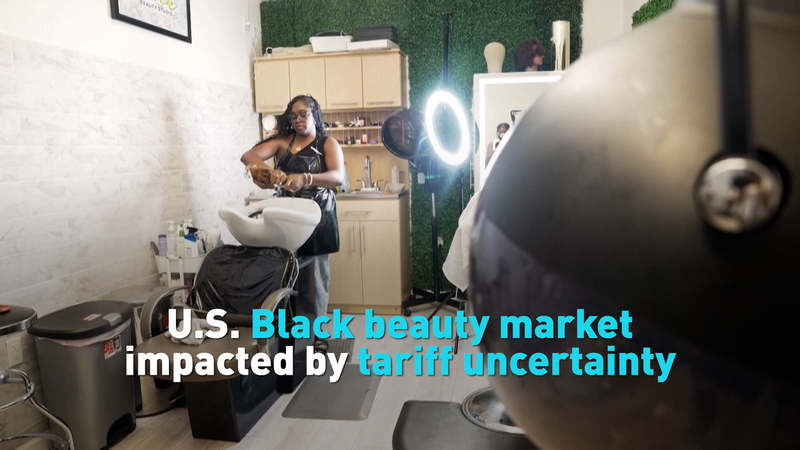The U.S. Black beauty market is booming but feeling the pinch of trade tensions. Valued at over $9 billion annually, this niche sector relies heavily on imports from the Chinese mainland—from hair extensions and special adhesives to custom-designed wigs.
Earlier this year, Beijing and Washington agreed to extend their tariff truce for another 90 days, but a 30% levy on all Chinese mainland exports to the U.S. remains in place. The uncertainty around possible rate hikes is pushing costs higher across the supply chain.
For many entrepreneurs and salon owners, the result has been sticker shock at every turn. "Our wholesale prices jumped by nearly 15% overnight," says a small-business owner in Atlanta. To sidestep further increases, some retailers have started stockpiling key items, while others are exploring alternative suppliers in Asia and beyond.
Data shows that price hikes are already being passed on to consumers. A recent survey found that 68% of Black beauty shoppers have noticed higher costs for extensions and styling products in the last month.
Experts warn this squeeze could lead to long-term shifts. Some brands are eyeing local manufacturing or partnering with sustainable suppliers to build resilience. Meanwhile, beauty-tech startups are experimenting with 3D-printing solutions to cut dependency on imports.
As the next tariff deadline approaches, industry leaders are calling on policymakers to find a balanced path forward. For now, the U.S. Black beauty market is in limbo—juggling the high stakes of global trade with the demands of a passionate consumer base.
Reference(s):
cgtn.com



